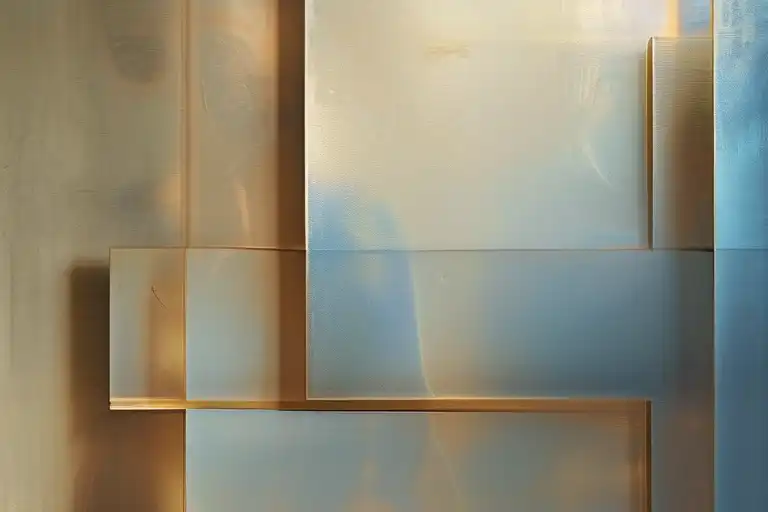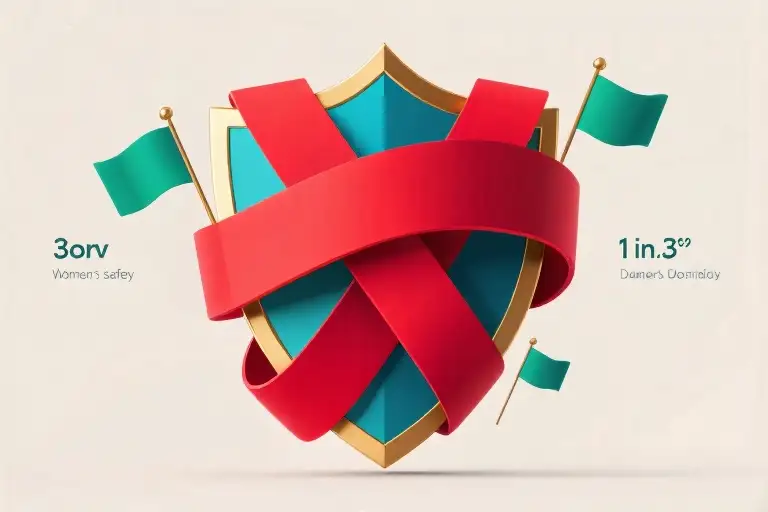The plastic straw made soft clicking sounds against the clear iced latte glass as Elise stirred absentmindedly. “He only asked you out because his first choice said no,” she remarked, her eyes fixed on the whipped cream slowly dissolving into the coffee. The flutter of excitement in my stomach from Gaurav’s dinner invitation collapsed like a deflated balloon.
This wasn’t new. The pattern had become familiar, these casual remarks that somehow always landed like tiny paper cuts. I watched the bubbles rise in my drink, the fizzy sensation mirroring the uncomfortable energy between us. Across the café table, Elise continued drawing circles with her straw, unaware of how her words had just rearranged the molecules in the air between us.
The mechanical engineering department’s fluorescent lights suddenly felt too bright when I’d told her about my Heat Transfer midterm score last semester. “Oh, everyone gets an A from Pandey first semester,” she’d said, barely looking up from her phone. “It’s practically a participation trophy.” The pride I’d carried all day from solving that particularly nasty thermodynamics problem had evaporated instantly.
Even compliments from others weren’t safe. When Priya from our materials lab praised my research methodology, Elise was quick to add, “She says that to everyone. She needs help with the calculations.” I’d watched Priya’s smile falter, the genuine moment of connection between us interrupted. My fingers had automatically straightened the stack of lab reports on the table between us, organizing the chaos Elise always seemed to bring.
The worst was when some girls from our class included me in their weekend trip to Solan. Their laughter had been warm, their invitation spontaneous. But Elise’s quiet “They only added you because Shubh’s been talking to you” in that dismissive tone had turned the moment sour. That time she’d even slipped into Hindi, as if to emphasize how little I mattered: “Tu koi VIP nahi hai.”
The café’s air conditioning hummed loudly as I traced a finger through the condensation on my glass. Each of Elise’s theories positioned me as incidental, secondary, unintentional. Never the destination, always collateral. The realization settled heavily, like the coffee grounds at the bottom of my unfinished drink.
The Heat Transfer Incident
The email notification blinked on my phone screen at 7:03 AM – Pandey sir had released the midterm grades. My thumb hovered over the attachment before swiping up with the kind of slow, deliberate motion people use when they’re afraid to hope. Then the number registered: 94/100.
I actually squeaked. In the mechanical engineering building’s women’s bathroom. Where three sophomores washing their hands turned to stare. The pink soap dispenser gurgled as I pumped it three times, the sharp citrus scent mixing with my sudden giddiness. Three months of solving practice problems until my pencil grooves matched the creases in my palm had actually paid off.
Elise found me fifteen minutes later at our usual library carrel, my thermodynamics textbook splayed open to the chapter on conduction. ‘You look like someone told you stainless steel has perfect emissivity,’ she said, dropping her bag with a thud that made the girl across the table glare.
‘Pandey posted grades.’ I tapped my pen against the 94 circled in red on my notebook’s margin. ‘Guess who aced Heat Transfer?’ The plastic pen cap left little crescent marks on the paper.
Her eyebrows did that thing where they stayed perfectly level while her mouth curved downward. ‘Oh honey. Everyone gets an A from Pandey first semester. It’s practically a participation trophy.’ She unwrapped her breakfast paratha, the greasy paper crackling. ‘Finals are where he remembers he has standards. I only missed out because I was running a fever and still dragged myself in.’
The numbers on my notebook blurred slightly. I noticed the library’s HVAC vent above us humming that particular frequency that always gave me a headache. ‘Shreya Mehra got a 68,’ I said quietly.
Elise shrugged, a flake of paratha clinging to her sweater. ‘She’s biomedical. Doesn’t count.’
Later, walking past Pandey’s office hours line, I overheard two third-years debating whether he really did grade first-years leniently. The taller one kept citing some ‘legendary 2018 batch’ where apparently everyone scored above 90. My fingers found the red crescent marks in my notebook’s margin and pressed down until the paper tore slightly at the edge.
That night, reorganizing my notes, I found the practice exam where I’d scored 82 two weeks before the midterm. The working steps I’d written in blue ink now had corrective notes in black – all the little methodical improvements I’d made after reviewing each mistake. The participation trophy comment echoed again, and suddenly I was scribbling so hard in the margin that my pen ripped through the paper.
Funny how one offhand remark could make months of deliberate practice feel like a clerical error.
The Lab Partner’s Compliment
The data sheets spread across the lab table like a paper mosaic, each column meticulously filled with my handwriting. Riya leaned over my shoulder, her perfume cutting through the sharp scent of isopropyl alcohol. “Your methodology section is flawless,” she said, tapping my notebook with her pen. “Professor Khanna should use this as a model for next year’s batch.”
A warmth started spreading through my chest—until Elise’s straw made that particular clicking sound against her iced tea lid. The one that usually preceded her corrections. “She says that to everyone,” Elise murmured without looking up from her phone. “Needs help with the calculations, doesn’t she?”
My fingers automatically straightened the already-aligned papers. The compliment dissolved like sugar in cold water, leaving behind a grainy residue. Riya opened her mouth, glanced between us, then quietly returned to her station.
Three tables away, someone laughed at a shared joke. The sound traveled clearly across the silent expanse between our lab group. I noticed how Elise’s phone screen reflected in her glasses—bright with some messaging app—while my own research notes blurred slightly at the edges.
That’s when I understood the pattern: every validation came with an asterisk. Praise was never about my work, but about someone else’s need. My A was grade inflation. My research skills were transactional. Even this lab partner’s admiration became about her own academic shortcomings.
The HVAC hummed overhead as I recopied the same data point three times. Each digit darker than the last, as if pressing harder could make the numbers more real than Elise’s version of events.
The Solan Trip Invitation
The text message notification buzzed against the cafeteria table, making my metal fork vibrate. A group selfie from the girls in our Fluid Dynamics class filled my screen – Priya, Ananya, and Meera grinning outside our campus gates with backpacks, captioned “Solan this weekend? We saved a seat in the van for you.”
My thumb hovered over the heart reaction when Elise’s hand reached across to tilt my phone toward her. That familiar sinking feeling started in my ribs as I watched her eyes scan the image. She took a deliberate sip of her chai before speaking, the ceramic cup clicking against the table like a judge’s gavel.
“Obviously they only added you because Shubh’s been talking to you in lab,” she said, wiping a nonexistent drip from the cup’s rim. The Hindi phrase slipped out like she’d been holding it between her teeth: “Tu koi VIP nahi hai.”
Around us, the cafeteria hummed with lunchtime chatter – someone laughing over spilled lassi, a study group debating over shared notes. But at our table, the words hung like monsoon clouds before the first drop falls. I could still see the girls’ smiling faces frozen on my darkened screen.
Elise was already moving on, scrolling through her own phone. “Besides, Solan’s overrated. The hotel they booked has bedbugs according to TravelForum.” She said it casually, like she was commenting on the weather, while my chest tightened around that simple Hindi sentence. You’re not a VIP.
Three words that reduced a weekend invitation to some calculated move in a game I didn’t know we were playing. The plastic chair suddenly felt harder under me as I watched Priya’s group chat message bubble appear – “We’ll wait for your reply!” with a sunflower emoji. The contrast between their warmth and Elise’s dismissal left me staring at my half-eaten aloo paratha, appetite gone.
Outside the cafeteria windows, I could see actual sunflowers growing along the walkway to the mechanical engineering building – bright and uncomplicated, turning toward the light without analyzing why it shone on them.
The Spring Festival Poster Flapping in the Wind
The committee’s approval email arrived on a Thursday afternoon. I read it three times before the words sank in – my proposal for the engineering department’s spring festival had been accepted. The paper notification poster trembled in my hand as I walked across the quad, its corners catching the breeze like wings trying to take flight.
Elise was sitting on our usual bench near the mechanical engineering building, her back perfectly straight against the slats. She held a chai in one hand and her phone in the other, thumbs moving rapidly. When she saw me approaching, she slipped the phone into her jacket pocket with that quick, practiced motion she always used when pretending she hadn’t been scrolling through Gaurav’s Instagram again.
‘They approved it,’ I said, holding out the poster before she could speak. The sunlight caught the metallic gold border of the announcement, making it shimmer between us. Her eyes flicked down to the paper, then up to my face. I watched her lips part, then press together again. The pause lasted just half a second too long.
I knew what was coming. The same measured tone she’d used about my exam results. The careful phrasing that turned compliments into accidents and invitations into pity. Three years of friendship had taught me to recognize the shape of her sentences before they left her mouth.
But this time, something shifted. Maybe it was the way the wind kept tugging at the poster, insistent as a child wanting attention. Maybe it was the memory of those girls from Solan laughing at a joke I’d made last week, their heads tilted toward me in a semicircle of warmth. Or maybe it was simply that three years is long enough to learn the difference between a friend’s honesty and their hunger to diminish.
When Elise finally spoke (‘They probably needed more events in the applied sciences category’), the words landed differently. Not like stones in my stomach, but like objects I could hold up to the light and examine. I noticed how her fingers tightened around the chai cup when I didn’t immediately agree. Saw the tiny frown between her eyebrows when I carefully folded the poster along its original creases instead of crumpling it.
The breeze picked up again, carrying the scent of cut grass and diesel from a maintenance truck idling nearby. Somewhere behind us, a group of first-years cheered as their hackathon team name was called over the PA system. And in that ordinary campus moment, with the sun warm on my shoulders and the approved proposal safe in my bag, I understood that some silences need breaking.
‘Actually,’ I said, and the world didn’t end. The quad kept buzzing with afternoon activity. The poster didn’t burst into flames. Elise’s face did something complicated, but her coffee remained stubbornly liquid in its cup. ‘Actually,’ I said again, louder this time, because the first time had felt so surprisingly good, ‘I think they liked my idea.’
We never realize how much space we’ve been taking up until we stop making ourselves smaller. The bench suddenly felt narrow in a way it never had before. My knees, usually pressed tight together to avoid encroaching, now planted themselves firmly on either side of my backpack. When I stood to leave, the movement came from my whole body, not just the apologetic little upper-body tilt I’d perfected over years of trying to disappear politely.
Elise called after me, something about the poster needing faculty signatures. I waved without turning around, already knowing where I’d hang it – right above the department bulletin board’s center divider, where both chemical and mechanical engineering students would see it when they checked their mailboxes. The wind caught my hair as I walked away, and for once, I didn’t bother pushing it back into place.
The Wind on the Quad
The acceptance letter for the spring festival committee fluttered in my hand, its edges catching the afternoon light. A gust of wind snatched it suddenly, sending the paper tumbling across the quad like a wounded bird. I watched it roll over patches of grass still damp from morning dew, finally catching on the corner of a picnic bench where it trembled against the metal leg.
That’s when I noticed it – my name peeking out from beneath where someone’s shoe had creased the paper. Just the tail end of the ‘i’ in Priya, the curve of the ‘a’ beneath a smudge of dirt. The rest buried under folds and footprints.
Three weeks earlier, I would have smoothed it out carefully, worrying whether the creases made me look careless. Two weeks ago, I might have laughed it off with Elise, letting her convince me the committee only accepted me because they needed more female engineers for the brochure photos. Last week, I probably would have left it there, walking away with that familiar hollow feeling behind my ribs.
But today I knelt on the damp grass, peeling the paper from the bench with fingers that didn’t shake. The wind picked up again as I stood, making the posters on the bulletin board flap like trapped moths. One came loose entirely – the call for volunteers that I’d hesitated three days before answering. It sailed over my head, carrying someone else’s neatly printed name into the oak trees.
I folded my acceptance letter twice, pressing the creases sharp enough to hurt my palm. The edges aligned perfectly this time. When I slipped it into my backpack, the weight felt different than I expected – not the heavy dread of proving myself worthy, but something lighter. Something that might, with care, become anticipation.
Across the quad, the wind turned another page in the story we were all writing. Somewhere between the rustling leaves and distant laughter, I realized this was how change began – not with dramatic confrontations or sweeping declarations, but with small acts of preservation. With choosing which voices to carry, and which to let the wind take away.





